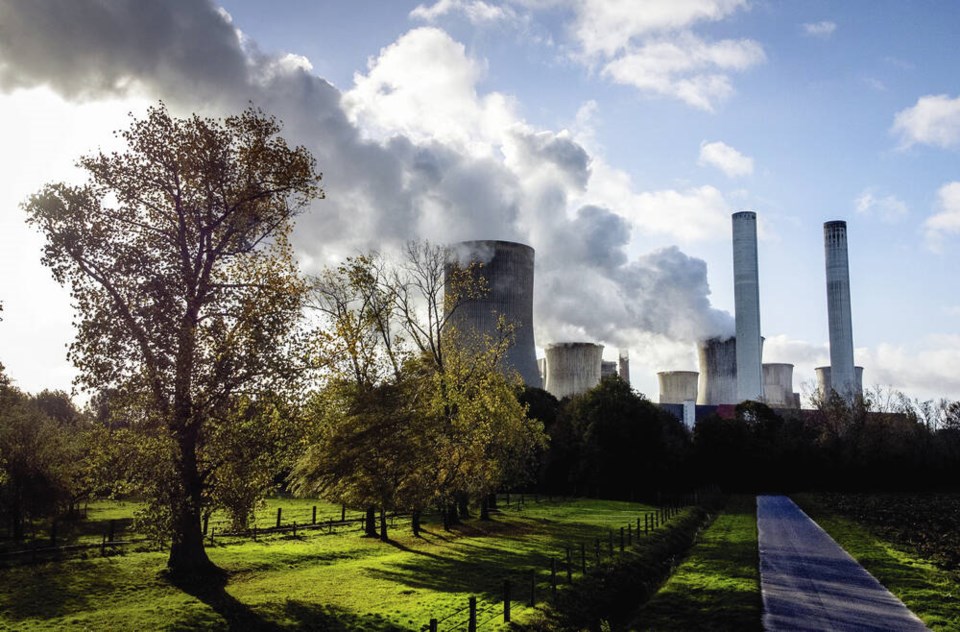In my last column, I noted that one of several things we fail to understand about our economy is what constitutes true wealth.
Yet we live in a capitalist society, so you would think people in general, and our corporate and political elites in particular, would understand the concept of capital.
Well, it turns out they don’t, and as a result, what we have is a partial, incomplete and dangerous form of capitalism — false or fake capitalism, if you like.
The mistake is to see capital largely or only in economic terms, either as financial capital (money, stocks and bonds etc.) or as produced capital — the stuff we produce and own, from trinkets to cities.
Hence the heavy focus on the economy, on GDP, on economic growth and the price of stocks and shares, on wages and benefits.
But capitalism as practised today largely ignores most of the wealth of our societies.
There are at least three other forms of capital that need to be included in our understanding of the true wealth of a community, a society or the world as a whole: natural, human and social capital.
Natural capital is the Earth’s biocapacity and resources, both locally and globally — the land, water and air that constitute our environment and the microbes, fungi, plants and animals with which we co-exist.
Human capital is the knowledge, skills, health and wellbeing of individuals and their capacity for caring, love, creativity and innovation.
Social capital is found in the way we relate to other people, whether through informal networks of association, formal programs of social welfare or the “invisible” social capital that regulates our peaceful co-existence through political, judicial and constitutional systems.
The idea of these four forms of capital is not new. I first came across it in the Gaia Atlas of New Economics in the early 1990s, while the World Bank published a report in 1995 in which it estimated the world’s wealth in terms of these four forms of capital.
Interestingly, it concluded that only 20 per cent of the world’s true wealth was to be found in economic capital, 20 per cent in natural capital and 60 per cent in a combination of human and social capital.
Unfortunately, because of our narrow understanding of capital, we often build economic capital by depleting these other forms of capital.
That is most obvious when we exploit and deplete the Earth’s natural resources such as forests or fisheries to create economic wealth, or when our economic activities poison the Earth and reduce biodiversity.
Indeed, in an independent review on the economics of biodiversity commissioned by the U.K. Treasury in 2019, Sir Partha Dasgupta, emeritus professor of economics at Cambridge, wrote: “in recent decades eroding natural capital has been precisely the means the world economy has deployed for enjoying what is routinely celebrated as ‘economic growth,” adding: “The near-universal conception we hold today of economic progress is wildly misleading.”
This mis-match between different forms of capital is also seen when we grow economic capital by eroding human capital, for example by exploiting people through keeping wages low and work part-time, failing to protect people’s health by selling unhealthy products or creating unhealthy and dangerous living and working conditions.
We often then compound this by creating a more atomized and individualistic society that weakens social connections, by cutting taxes that support education or social caring, or by undermining legal and political legitimacy.
Clearly, we need a new form of capitalism, real capitalism, in which we consider all forms of capital together, something the UN and others call inclusive wealth.
In its 2018 report on inclusive wealth, the UN Environment Programme reported that globally, between 1992 and 2014, produced capital per person doubled, but human capital only increased about 30 per cent, while natural capital declined by almost 40 per cent.
Does that really represent progress? Are we really better off?
Real capitalists are those who build all four forms of capital simultaneously. My challenge to the world’s capitalists is very simple: Why don’t you try practising real capitalism, rather than the false capitalism that is currently practised?
We would all be a lot better off. Next week, I will look at countries that are working on this.
Dr. Trevor Hancock is a retired professor and senior scholar at the University of Victoria’s School of Public Health and Social Policy
>>> To comment on this article, write a letter to the editor: [email protected]



